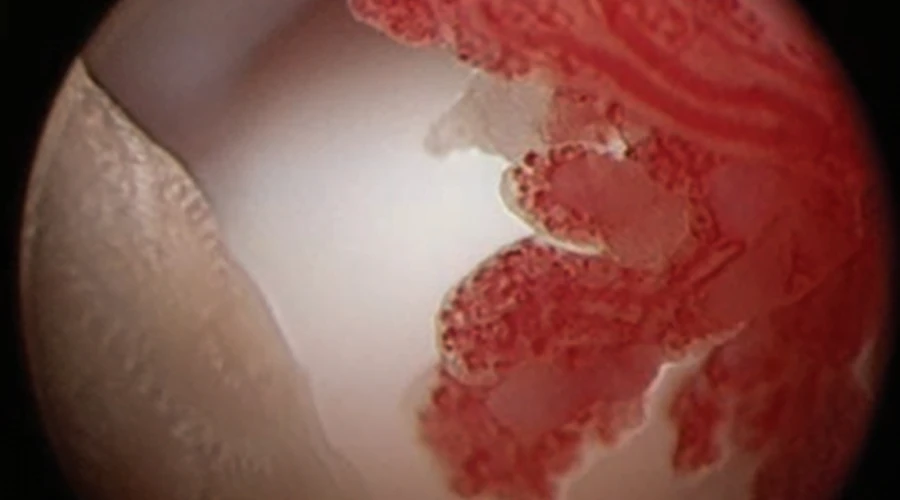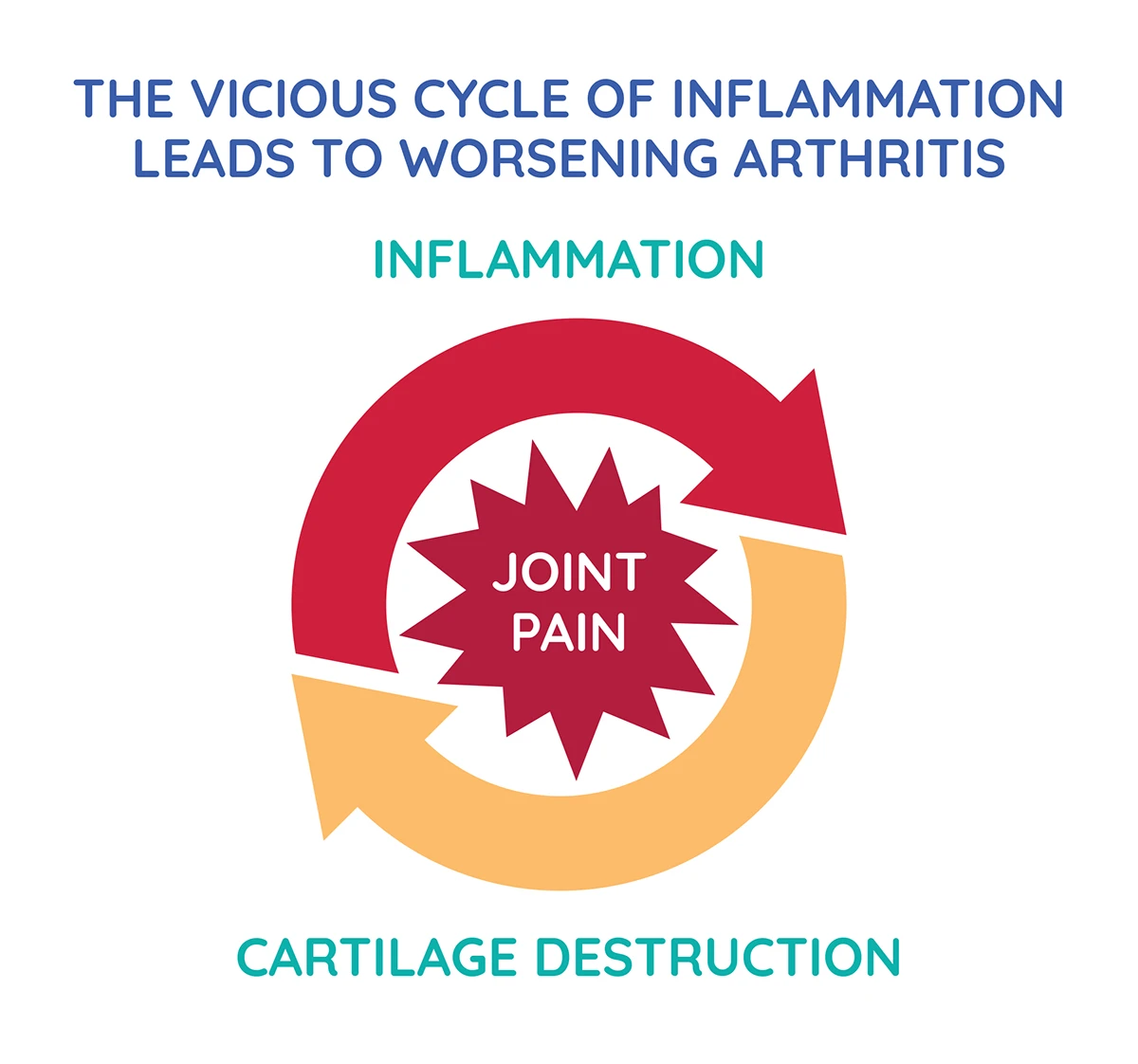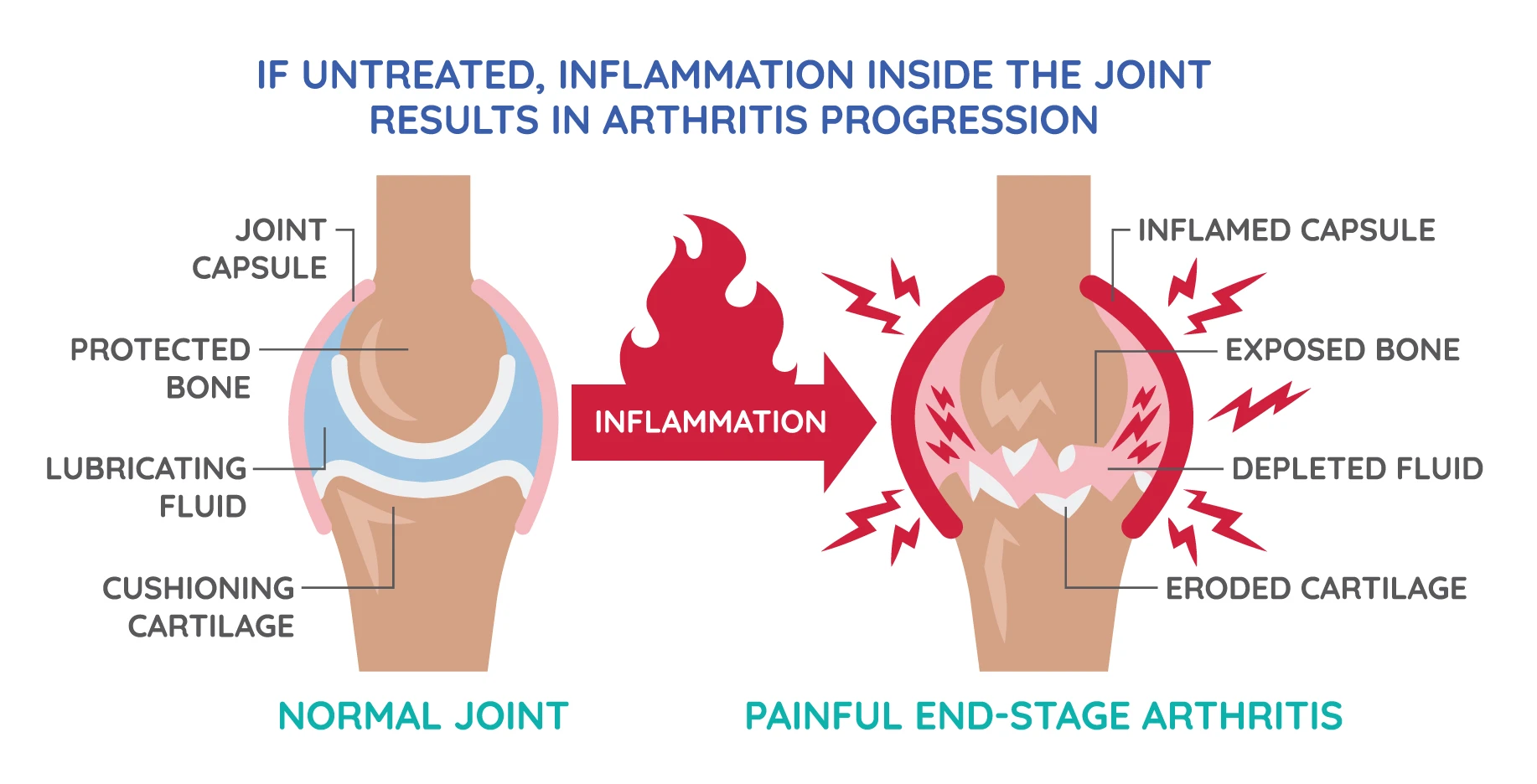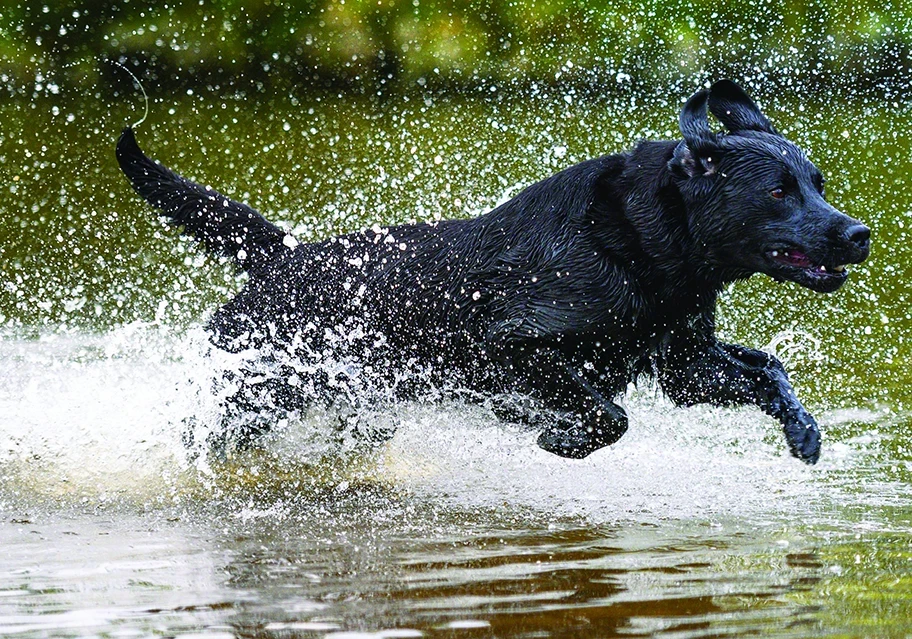Dogs can get arthritis in their joints just like people
Veterinarians often refer to dog arthritis as canine osteoarthritis (OA). It is a very common cause of limping and lameness. In fact, roughly 25% of all adult dogs in the US have osteoarthritis.

Image courtesy of Steven Fox, MS, DVM, MBA, PhD.
Dog osteoarthritis in the elbow is extremely common and very painful
- It often starts at a young age and can be caused by abnormal development of the elbow joint bones, stress on joints, or injuries
- The most popular breeds are often affected, including Labrador Retrievers, Golden Retrievers, German Shepherds, and Rottweilers
- Daily pain relievers, like NSAIDs, are often needed as early as 2 years of age
- Fewer than half of all treated dogs have satisfactory long-term recovery
- It results in limping and lameness in dogs

Joint inflammation causes a vicious and destructive cycle
The cycle begins when the tissue that lines the joint becomes inflamed. This inflammation is called “synovitis.”
In response, your dog’s immune system overreacts and begins producing certain substances to combat the inflammation. However, the overproduction of these substances actually results in damage to the cartilage that protects the bones of the joint.
This “vicious cycle” is what ultimately results in the chronic pain, inflammation, and disability of dog osteoarthritis.
If the inflammation causing dog arthritis isn’t treated, it gets worse over time
Because dogs don’t readily show signs of pain, a dog that is noticeably limping has been dealing with steadily increasing pain that has now become severe enough for you to observe.
This is due to the inflammation inside the joint causing pain and limping. If left unchecked, cartilage is destroyed and bones rub together, causing even more severe pain.


Some of the signs of dog joint pain include…
- Having difficulty going up and down stairs
- Lacking enthusiasm or lagging behind on runs and walks
- Losing interest in leaping and jumping for favorite balls
- Having trouble hopping in and out of your car
- Limping and lameness in dogs
- Vocalizing (crying or whimpering)
You might also notice that your dog can’t easily jump on and off furniture, struggles to get up after lying down, has trouble walking on slick floors, or even seems aggressive when handled.
Another sign of dog arthritis is a decrease in enthusiasm that you might mistake as just “old age.” However, it may actually be arthritis pain, so be sure to tell your veterinarian if you notice this in your dog.

